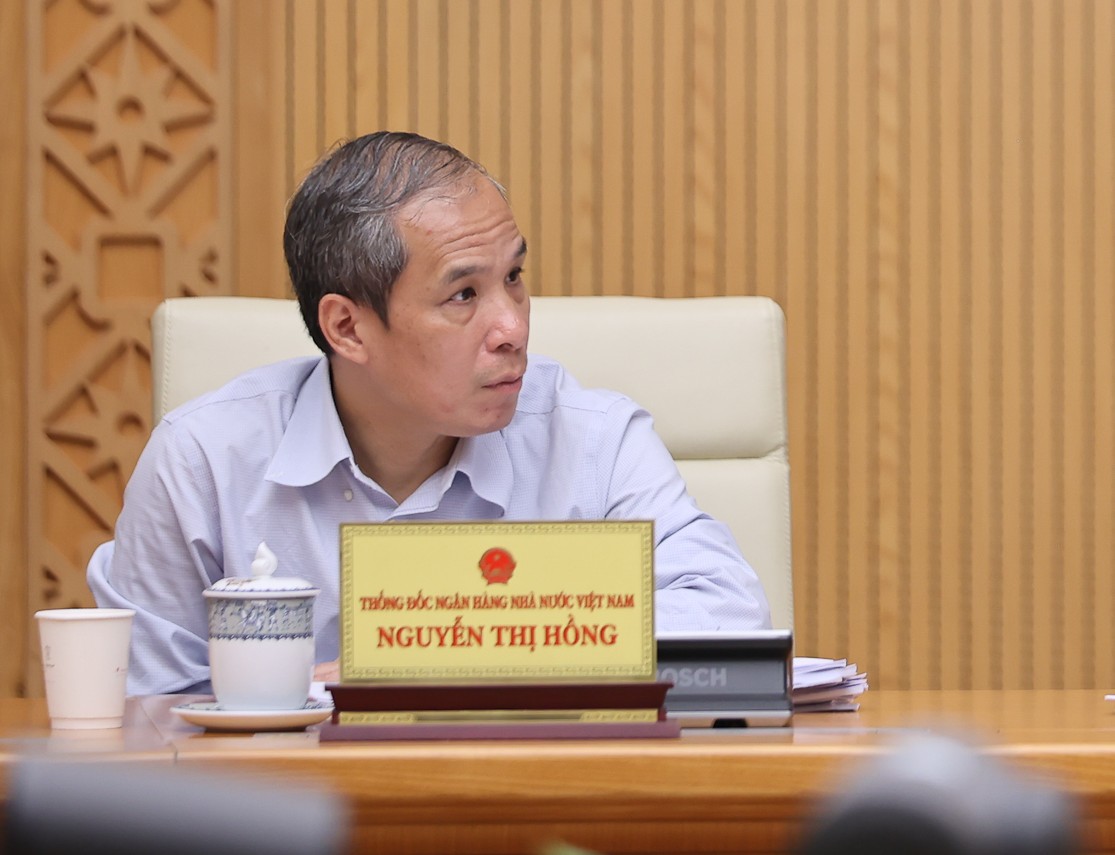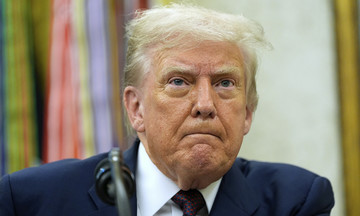Gold prices have been climbing steadily for the past two weeks, with each tael increasing by approximately 10 million VND, equivalent to a nearly 8% rise. This morning, gold bars rose by another 1 million VND, reaching a new record of 135 million VND, maintaining a 20 million VND difference compared to global prices.
At the government meeting on 6/9, State Bank of Vietnam Deputy Governor Doan Thai Son explained that the recent gold price surge was due to a significant increase in global gold prices. Simultaneously, market expectations and public sentiment anticipating further price increases have fueled a high demand for gold.
Specifically, in the past week, global gold prices have skyrocketed, equivalent to an increase of over 3 million VND per tael in Vietnam. This information, combined with widespread speculation that gold prices will reach a peak of 3,500 USD per ounce, has driven a sharp rise in demand for gold as a store of value, according to the Deputy Governor.
Another contributing factor is the limited domestic supply, as the State Bank of Vietnam has temporarily halted the sale of SJC gold amidst a transition to a new management mechanism.
 |
State Bank of Vietnam Deputy Governor Doan Thai Son reports at the government meeting on 6/9. Photo: VGP |
State Bank of Vietnam Deputy Governor Doan Thai Son reports at the government meeting on 6/9. Photo: VGP
During the same meeting, Prime Minister Pham Minh Chinh instructed deputy prime ministers and relevant agencies to assess the situation, propose appropriate solutions, and implement timely policy responses in key areas, including the gold, real estate, and stock markets.
The Prime Minister described the gold price fluctuations as "very noteworthy." He stated that he had directed relevant authorities to intervene and prevent market manipulation, hoarding, and price gouging in the gold market. He also ordered the State Bank Inspectorate, and if necessary, the Government Inspectorate to investigate instances of hoarding, price inflation, and market manipulation.
Regarding the Prime Minister's directives, the Deputy Governor affirmed that the State Bank of Vietnam will intensify inspections and investigations to clarify the situation, while collaborating with relevant ministries and agencies to address any violations.
"The most crucial step is to promptly implement solutions to manage the gold market under the new mechanism approved by the government," emphasized Deputy Governor Doan Thai Son.
In addition to gold prices, core inflation persisting above 3% for several months, high credit growth, and exchange rate fluctuations present significant challenges for the banking sector's management.
According to Deputy Governor Doan Thai Son, core inflation remaining above 3% for several months is a cause for concern. This threshold is generally considered a warning sign in policy management.
This trend stems from persistent global inflationary pressures, rising energy and raw material prices, and unpredictable global market fluctuations that have significantly increased production and import costs. Domestically, rising rental costs and dining expenses, coupled with increases in gold prices and several state-managed commodities, have further exacerbated inflation.
Given this trend, Mr. Son stated that the State Bank of Vietnam agrees with the Ministry of Finance on the need for close monitoring and flexible management.
"If inflation continues to show signs of escalating," Mr. Son argued that proactive measures are necessary, emphasizing the importance of avoiding complacency. Experience shows that once inflation surpasses a certain point, subsequent control measures come at a steep price.
Regarding exchange rates and interest rates, as of 31/8, the average lending rate was at 6.38%, a decrease of 0.56% compared to the end of 2024. However, the overall trend presents potential risks. Outstanding credit at the end of August reached 17.14 quadrillion VND, an 11.08% increase compared to the end of the previous year. Projected over a full year, credit growth is around 20.19%, the highest in many years, compared to the typical rate of around 14.5%.
The Deputy Governor explained that this leads to two consequences. First, banks are compelled to increase capital mobilization, which could push deposit interest rates higher, followed by lending rates. Second, strong credit growth implies a larger money supply, creating long-term inflationary pressure.
Meanwhile, the exchange rate faced considerable pressure, particularly in August. High USD interest rates alongside low VND interest rates have spurred capital flight. Furthermore, disbursements of foreign loans have decreased while repayment obligations have increased.
In response, the State Bank of Vietnam announced it will manage the exchange rate flexibly, coordinate with interest rate and liquidity tools, and be prepared to sell foreign currency as needed.
Phuong Dung












